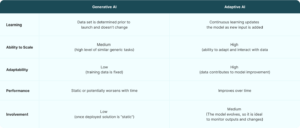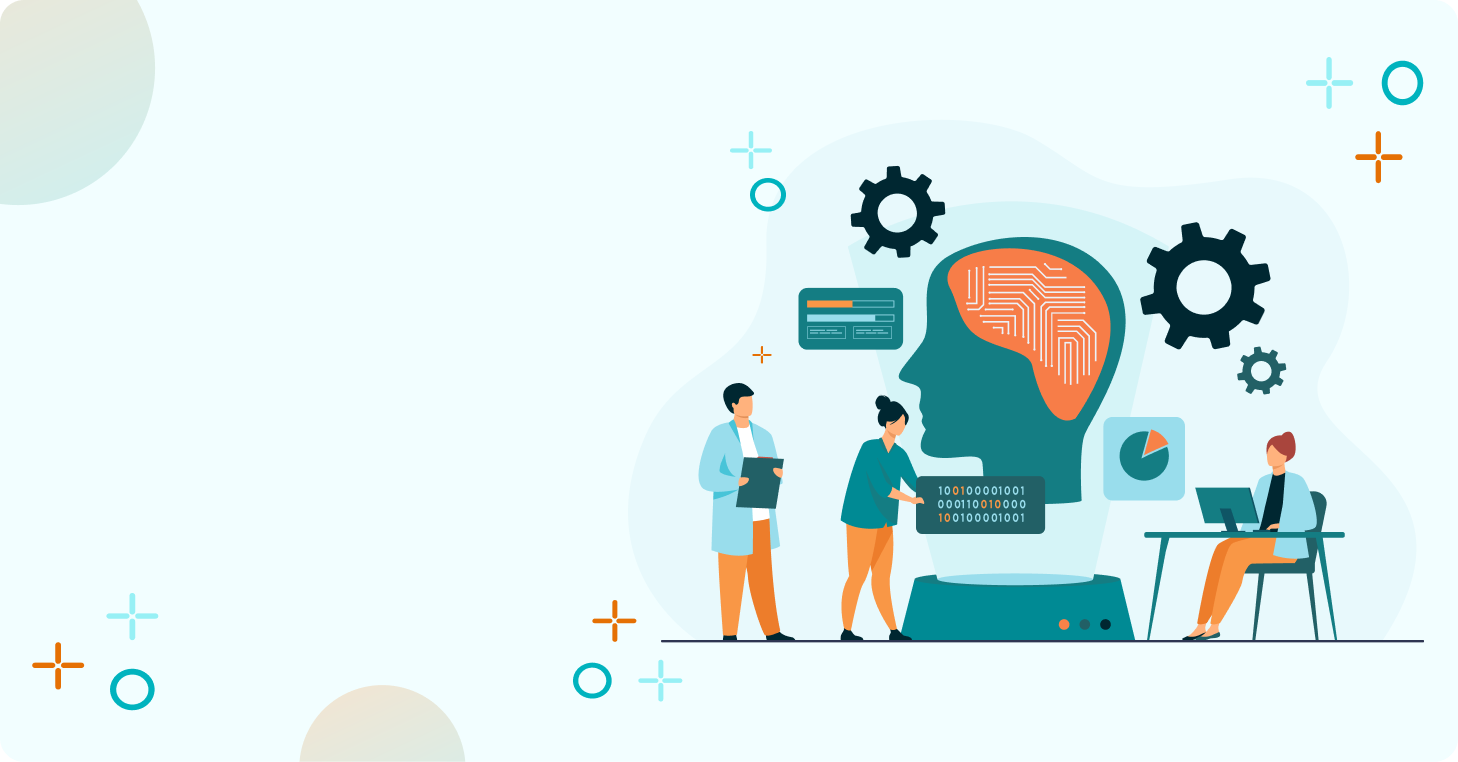AI is a hot topic that most businesses are concerned about how to implement and reap the benefits of a new emerging technology. With all the hype surrounding AI, the newfound power of ChatGPT, Large Language Models (LLMs) and context aware and content generating solutions, there are many opportunities for businesses to adopt and implement AI. It is important to understand the differences and the best applications of each type of AI.
1. What is ChatGPT/Generative AI?:
Generative AI is very valuable to people and businesses because it communicates in human language to answer questions (also known as prompts) and respond in a very human-readable way. For business, this means generating content at scale is much easier and more user-friendly than ever before. Generative AI is trained on vast amounts of data and uses those references to create responses to user questions, but generative AI doesn’t really evolve over time, instead a new version needs to be created and released.
2. What is Adaptive AI?:
Adaptive AI is useful because it can continue to evolve through use and experience. This means that for a business that evolves, adaptive AI solutions can evolve with it. Adaptive AI is very useful in e-commerce and retail for managing and predicting personal preferences, loyalty offerings and pricing. Adaptive AI can be trained on company data sets to produce results and it will continue to evolve and improve through use and user input, making it a great solution for predictive actions in retail.
Comparing Gen AI and Adaptive AI:

Shopify is a cutting-edge example of using generative AI to create product content. Shopify can help with product descriptions, customer contact via email and ensuring the consistency and tone of product branding. Shopify has integrated this into their ecommerce platform to make setting up products quicker and easier for retailers. Sephora also showcases generative AI in delivering product advice and active product consulting to customers online. Creating product reservations, finding product availability and booking appointments are a few of the AI enabled features that Sephora has launched.
Adaptive AI has been used to create better inventory management to reduce food loss and better manage inventory for a leading Canadian grocery chain, Metro. This AI creates the ability for each store location to make better individualized decisions and create better sales due to understanding evolving customer needs.
Understanding the differences between AI and their most applicable problems is important for businesses to take the next steps in planning and implementing AI within the business. Just like any other technology, it isn’t a one-size-fits-all scenario. Each business problem can be solved differently through AI implementations, and it is important to have context on how each AI can compare.
TheAppLabb is a leader in retail and e-commerce solutions, including implementing AI projects to realize innovative solutions. Our product development and design teams can work to integrate AI experiences into your retail solutions to provide intuitive, easy-to-use and compelling AI solutions. Retail brands need to continue to innovate and integrate emerging AI solutions into their platforms to stay competitive and relevant.


